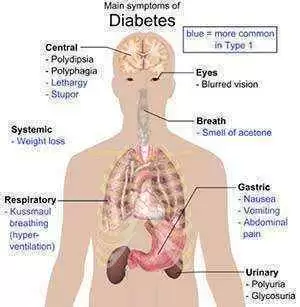Celiac.com 08/10/2016 - Low HDL cholesterol (HDL-C) concentrations have long been tied to increased cardiovascular risk. People with type 1 diabetes (T1D) who presented complications (1) and people with untreated celiac disease also have low HDL-C levels. People with both TID and celiac disease might face a sharper lipid abnormalities and a more aggressive the atherosclerotic process. Can a gluten-free diet reverse that process?
A team of researchers recently set out to examine the effects of a gluten-free diet lipid on profiles of patients with Type 1 diabetes. They study was conducted on behalf of the for the Diabetes Study Group of the Italian Society of Pediatric Endocrinology and Diabetology (ISPED). The research team included Silvana Salardi, Giulio Maltoni, Stefano Zucchini, Dario Iafusco, Santino Confetto, Angela Zanfardino, Sonia Toni, Barbara Piccini, Maximiliano Zioutas, Marco Marigliano, Vittoria Cauvin, Roberto Franceschi, Ivana Rabbone, Barbara Predieri, Riccardo Schiaffini, Alessandro Salvatoni, Petra Reinstadler, Giulia Berioli,Valentino Cherubini and Giuseppe d'Annunzio.
Celiac.com Sponsor (A12):
They are variously affiliated with the Department of Pediatrics, S. Orsola-Malpighi Hospital, University of Bologna, Bologna, Italy, the Department of Pediatrics, Second University of Naples, Naples, Italy, the Meyer Children's Hospital, University of Florence, Florence, Italy, the Regional Center for Pediatric Diabetes, Clinical Nutrition & Obesity, Department of Life & Reproduction Sciences, University of Verona, Verona, Italy, the Pediatric Unit, S. Chiara Hospital, Trento, Italy, the Department of Pediatrics, University of Turin, Turin, Italy, the Department of Medical and Surgical Sciences for Mothers, Children and Adults, University of Modena and Reggio Emilia, Modena, Italy, the Endocrinology and Diabetes Palidoro Unit at the University Department of Pediatric Medicine, Bambino Gesu Children's Hospital, IRCCS, Rome, Italy, the Pediatric Clinic, Insubria University, Varese, Italy, the Department of Pediatrics, Regional Hospital, Bolzano, Italy, the Department of Gynaecological, Obstetric and Paediatric Sciences at the University of Perugia in Perugia, Italy, the Division of Paediatric Diabetes in Children and Adolescents, Maternal-Infantile Department, Salesi Hospital, Ancona, Italy, and with the Department of Pediatrics, IRCCS Gaslini Children's Hospital at the University of Genova in Genova, Italy.
From 13 centers within the Italian Society of Pediatric Endocrinology and Diabetology (ISPED), the team collected data on a large number of children with both T1D and concurrent biopsy-proven celiac disease. They collected data at the time they initiated a gluten-free diet, and again after 1 year of a gluten-free diet. They verified gluten-free status using serum tests for celiac disease-related antibodies.
They enrolled 201 children with T1D diagnosed at age of 5.8 +/- 3.8 years, and celiac disease diagnosed at age of 7.5 +/- 4.5 years. To compensate for any metabolic derangement at diabetes onset, they included only cases in which celiac disease diagnosis was made at least 3 months after that of T1D.
As a control group, they used 224 patients with T1D only, matched by age, sex, diabetes duration, and HbA1c.
Before subjects began a gluten-free diet, the team found that HDL-C values were significantly lower in children with celiac disease and T1D than in the control group, with the greatest decrease found in younger children aged, 6 years. Subjects with HDL-C values below pediatric percentile cutoffs for sex and age were younger than those with normal values (6.2 +/- 4.4 vs. 8.6 +/- 4.3 years, P , 0.0001) and also had lower HbA1c (7.5 +/- 0.8 vs. 8.0 +/- 1.5%, P , 0.005).
After a gluten-free diet the average values of HDL-C in the total study population rose sharply to 60.9 +/- 13.7, compared with 51.3 +/- 13.6 mg/dL (P , 0.0001), and returned to normal.
The percentage of subjects with HDL-C values lower than pediatric percentile cut points fell significantly (P , 0.0001) from 42 to 16%. Subjects with complete adherence to gluten-free diet showed the most significant improvement of HDL-C, and subjects with partial adherence showed a lower, but significant, improvement of HDL-C.
These results dovetail with other data from the past few years, but more clearly indicated the reduction in HDL-C at diagnosis, and the better recovery with a gluten-free diet. The researchers view the reduction HDL-C either as a proxy marker for intestinal inflammation, or as the result of a change in the intestinal secretion of apolipoprotein AI (5), the major HDL structural protein.
This change is seen most sharply in the youngest children, who probably suffer more severely, as indicated by signs of malabsorption, e.g., lower HDL-C and HbA1c levels. Children with T1D and untreated celiac disease, especially young children, typically show an unfavorable lipid profile, i.e., low HDL-C values.
Following a gluten-free diet normalizes HDL-C levels, with the greatest benefits can be seen in individuals who follow the diet strictly, and in the youngest individuals.
Because of the possibility of increased risk of cardiovascular disease, a strict gluten-free diet is mandatory in these children.
Source:
- Open Original Shared Link





Recommended Comments
There are no comments to display.